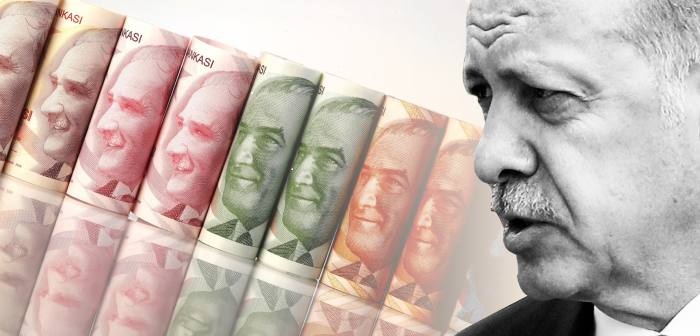AhlulBayt News Agency (ABNA): On March 30, Turkish President Recep Tayyip Erdogan changed central bank governor for the third time in two years, making things worse and resulting in substantial fall of the value of national currency lira against the US dollar.
The reasons and consequences of this issue are now rising themselves seriously and it seems that its continuation in the future will toughen the victory path for the ruling Justice and Development Party (AKP) and Erdogan in the parliamentary and presidential elections.
Lira 14-percent value loss against dollar
The change of central bank chief came three days after the country’s monetary body raised interest rates from 17 percent to 19 percent. The move immediately showed its negative impact on the country's foreign exchange market, resulting in lira shrinking 14 percent against dollar. This surprise move by Erdogan has pushed the lira to its record lows, since November 2020. The US dollar was valued at around 8.4 lira earlier this week in East Asian markets. On Friday, the figure was 7.22 lira, showing a considerable plunge. However, the value of the lira against the dollar reached 8.2 in the East Asian markets a few hours later.
10 years ago, each dollar was dealt for 1.48 liras. This rate, however, changed to 7.91 liras during a Turkish currency crisis. In 2015, for example, each US dollar was equivalent to 2.5 Turkish lira, and since then the lira lost one-thirds of its value. This situation comes as Joe Biden’s assumption of power in the US and possibility of new Washington-Ankara confrontations over an array of issues and also new American sanctions against Turkey leave Erdogan facing dim prospects for economic improvement.
Central bank chiefs sacking domino
Over the past two years, Erdogan followed a policy of changing the central bank governors in response to the hard economic times the national economy has been facing. He changed four central bank chiefs, an arrangement that can be called a trick to escape the responsibility for the economic crash. Actually, during the hard economic times the country faced over the past few years, Erdogan tried to disconnect himself from any economic accountability and instead blame others as responsible for the tense economic conditions, all to save his chance for victory in the 2023 presidential elections.
The change of the previous governors is, to some extent, justified, but in the meantime, the positive performance of Naci Agbal over the past four months and his ouster by Recep Tayyip Erdogan is surprising to the political analysts. Agbal managed to increase the lira value that saw its record lows. During his short presidency over the central bank, he fought against above-15 percent inflation by increasing the interest rates.
Furthermore, home and foreign investors praised the central bank’s policy under Agbal to restore monetary discipline to the economy. The tendency to invest in the Turkish economy increased with Aqbal financial policies. Recently Agbal even was able to raise the value of the lira higher by introducing 2-percent increase to interest rates. But appointment of Sahap Kavcioglu, as a little-known banking expert to replace Agbal, has extremely raised the concerns.
Turkey under threat of outflows of foreign capital
Over the past few years, investors urged the government to approve strict financial policies to address the 15-percent inflation and prevent foreign capital outflow. In fact, the high inflation rates delayed the foreign investments in Turkey. However, policies of Agbal, which included interest rate hikes and promises of strict financial regulations, caught the investor attention and promised improvement to the troubled economic conditions.
But now, analysts and investors are worried that Erdogan's decision to appoint Kavcioglu as the new head of the central bank could undo Agbal’s short-term gains. The new chief, not an economist of much prominence, last month in a pro-government newspaper warned that increased interest rates will indirectly push up inflation. The interest rate is now 19 percent, which caused foreign funds inflow.
Robin Brooks, an economist at the Institute of International Finance, believes that Turkey is under threat of exit of big investors and this will pressure the lira value. It is even possible, he continues, Erdogan in the near future will fire the newest central bank governor to clear himself from the responsibility for lira price slump.
/129

